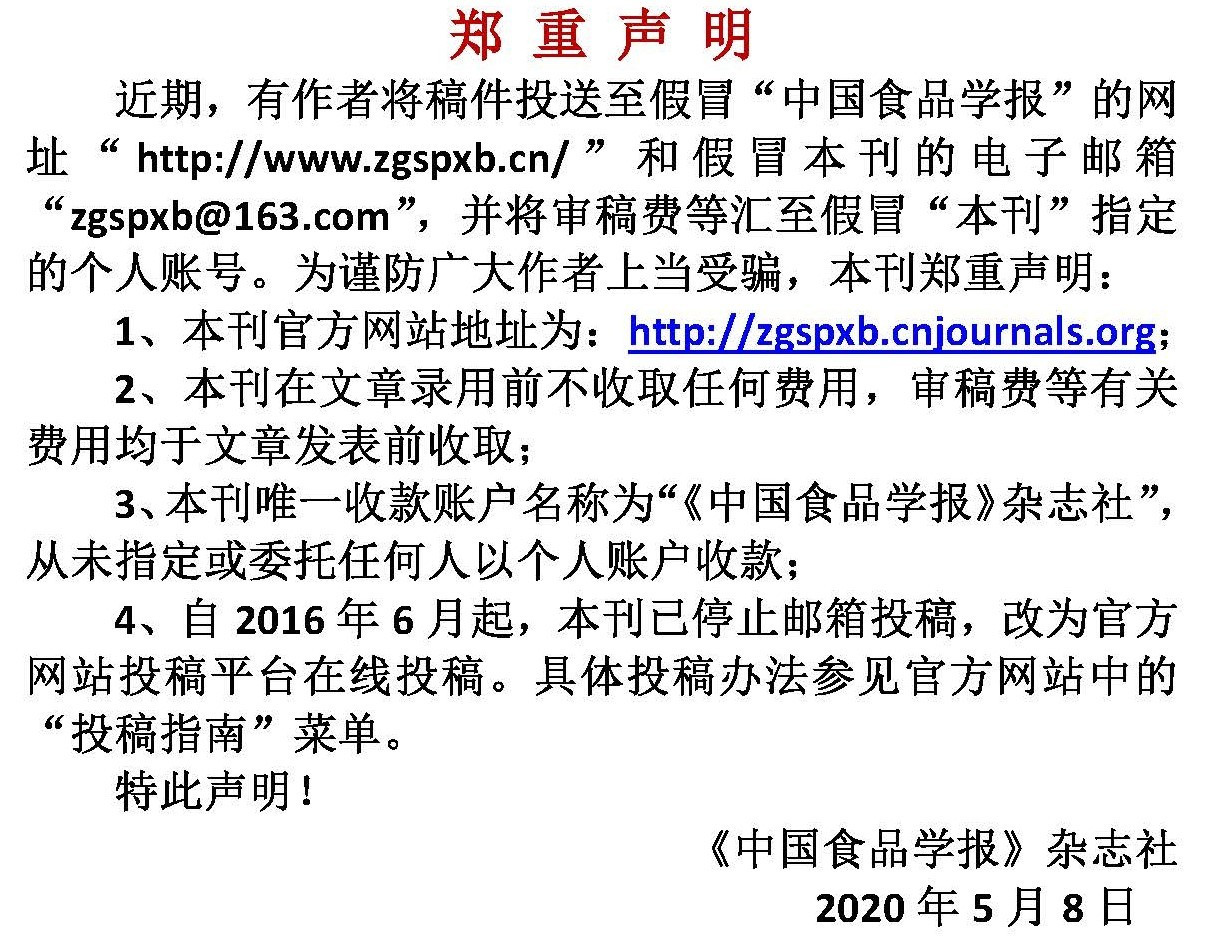动物源性肉制品中氯霉素测定方法的优化
作者:
作者单位:
(上海市质量监督检验技术研究院 上海 200233)
作者简介:
通讯作者:
中图分类号:
基金项目:
Optimization on the Determination of Chloramphenicol in Animal-derived Meat Products
Author:
Affiliation:
(Shanghai Institute of Quality Inspection and Technical Research, Shanghai 200233)
Fund Project:
引用本文
卞华,宁啸骏,杜茹芸.动物源性肉制品中氯霉素测定方法的优化[J].中国食品学报,2023,23(2):296-308
复制分享
文章指标
- 点击次数:
- 下载次数:
- HTML阅读次数:
历史
- 收稿日期:2022-02-03
- 最后修改日期:
- 录用日期:
- 在线发布日期: 2023-03-22
- 出版日期:
文章二维码

版权所有 :《中国食品学报》杂志社 京ICP备09084417号-4
地址 :北京市海淀区阜成路北三街8号9层 邮政编码 :100048
电话 :010-65223596 65265375 电子邮箱 :chinaspxb@vip.163.com
技术支持:北京勤云科技发展有限公司
地址 :北京市海淀区阜成路北三街8号9层 邮政编码 :100048
电话 :010-65223596 65265375 电子邮箱 :chinaspxb@vip.163.com
技术支持:北京勤云科技发展有限公司
